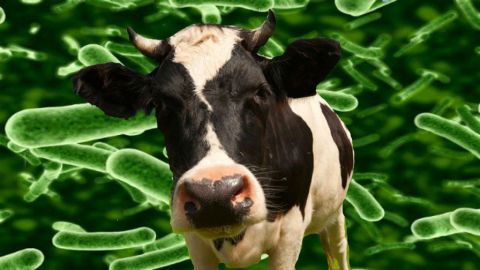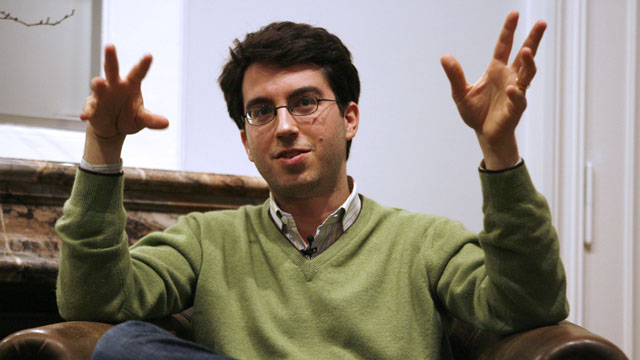Should we tax meat to save antibiotics?

Antibiotic resistance is perhaps the deadliest crisis you don’t think about much. In the United States alone it causes more than 20,000 deaths per year, and that number is likely to go up if nothing is done to fix the problem. If we lose the use of our greatest tool against disease, then the golden age of modern medicine could soon pass, and illnesses that were long thought defeated could return to kill millions once more.
The statistics are chilling, 10 percent of E. coli samples are resistant to at least one antibiotic, as are an increasing number of strains of salmonella and the bacterium that causes pneumonia. Certain Staph infections have developed such resistance to antibiotics that the acronym MRSA is both well-known and justly feared.
What is causing this?
To use antibiotics at all is to risk creating resistance to them. It’s natural selection at work. The bacteria which have any resistance to the drugs will survive and multiply, while those which can be killed by antibiotics will not.
This is why your doctor will often tell you to take antibiotics long past when you feel better; they want to leave nothing to chance. However, many people stop taking their drugs before they are supposed to.
Complicating matters is our often-poor use of the tools we have. One-third of the antibiotic prescriptions given in the United States are unnecessary, and half of all the antibiotics produced for use in the United States are used on farm animals.
Farm animals?
In many countries, farm animals are often given antibiotics at subtherapeutic levels to promote their growth. Since the dosage is low, even bacteria with only moderate resistance to antibiotics can survive and multiply. So we’re practically asking for trouble when we do this.
The practice does promote growth in farm animals, sometimes substantially. It isn’t necessary for farms to be able to produce food, however. It is merely a supplement to productivity. Given how many people work with animals and the increasing number of countries which use antibiotics to help promote animal growth, the chance for a “superbug” to be born inside a farm animal and make a quick leap to people is a growing possibility.
What can we do?
In a paper published in the Journal of Agricultural and Environmental Ethics by Alberto Giubilini et al., a two-part solution is put forth; tax the meat that is made less expensive by the overuse of antibiotics and use the money to transition to a system where that overuse is not required.
But why should I pay more for meat? The farmers are the ones using the drugs!
In their essay, the philosophers argue that there are both deontological and consequentialist reasons to support such a tax being placed on the people who are buying the meat.
The deontological argument
The first part of their argument is based on the idea that we all have rights which should be respected. By this reasoning, if other people’s actions harm us we then have a right to compensation.
In this case, everyone is harmed when antibiotics are overused and become less effective. Since customers are promoting the overuse by their actions, they are then obligated to chip in to repair the damage.
In the words of the authors:
Antibiotic resistance is driven, among other things, by antibiotic use and abuse in animal farming. Consequently, consumers’ choices to buy animal products obtained with the use of antibiotics, to the extent that they support the use of antibiotics in animal farming, are harming people. Those who consume such animal products are therefore violating a prima facie moral duty not to harm others. The fact that they are violating a moral duty not to harm others generates a prima facie moral duty for them to compensate those they are harming. A tax on consumption of non-antibiotic-free meat can therefore be justified on the basis of this duty of compensation, provided the tax is used to benefit society.
The consequentialist argument
Of course, the above argument assumes that customers have a moral responsibility for how their food is produced. That point could be controversial. To avoid getting hung up on that issue, the authors also made a cost-benefit argument that harkens back to consequentialist ethics. Here, they argue simply that the gains from such a tax would outweigh the cost.
Antibiotic resistance represents a high cost not only for people currently living, but also for future generations, who might not avail themselves of antibiotics to treat serious infections, as the examples provided in the introductory section suggest. Considering both present and future generations, the number of people harmed by antibiotic resistance is potentially enormous. By contrast, it is not clear that the costs of reduced meat consumption and production would be comparably large. It is therefore reasonable to claim that the benefits of a tax would outweigh the costs if the tax resulted in a significant reduction of antibiotic use in animal farming and therefore in a significant deceleration of antibiotic resistance.
Are there any downsides to this?
Both of the above arguments are heavily based on the idea that the money from the new tax would be dedicated to promoting alternatives to antibiotics in farm animals. The authors suggest a variety of solutions, including vaccinations, better animal hygiene, nutritional supplements, and selective breeding for immune system strength. However, the justifications for the tax and the merit of it as a solution vanish if the money goes elsewhere.
They are also both based on the idea that the cost of solving the problem should be borne primarily by consumers and to a lesser extent the producers. One could argue that everybody should pick up the tab since we would all benefit or that producers alone should pay for fixing the problem since customers might not have access to antibiotic-free options at the grocery store.
This plan also only deals with antibiotic resistance caused by farming. While this is substantial and methods of reducing antibiotic use in livestock have worked as desired in Europe, it is not the only cause of a very large problem. Further action would be needed to assure that we continue to have the drugs that have saved millions of lives and made getting sick a lot less deadly.
Antibiotic resistance should scare you. These philosophers argue that a potential solution to the problem can be found in taxing meat. While the solution is moral, it is far from perfect. However, the cost of not acting might be much higher than any tax on food.





